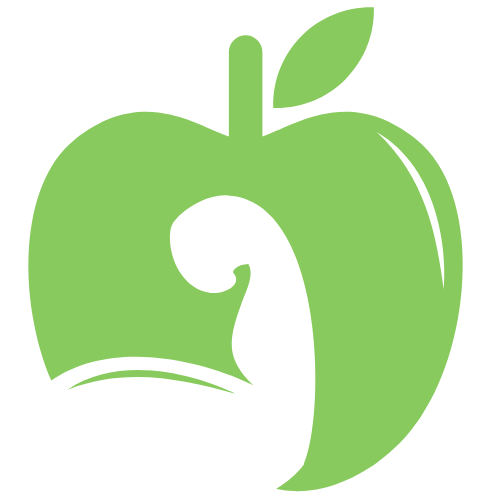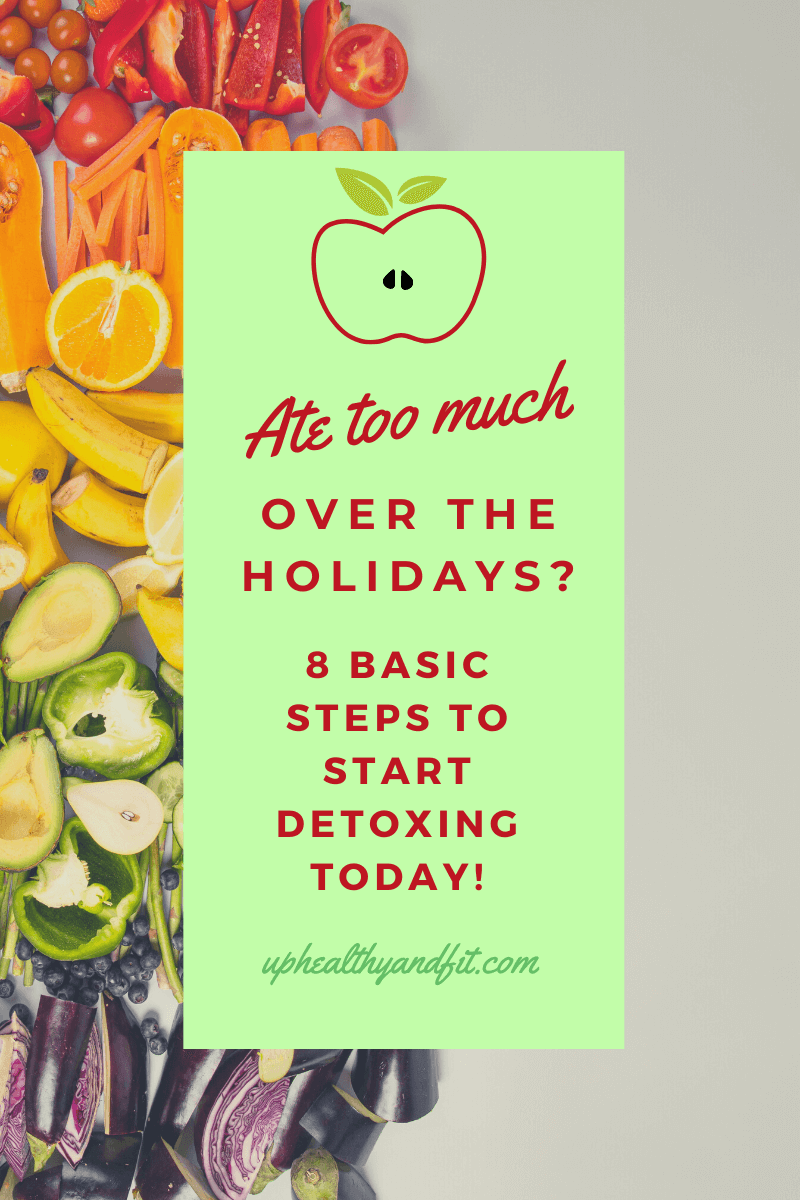The holidays are over and some people may feel a little sad, while others may feel relieved, but quite surely most of us feel tired, heavy, and bloated from indulging in different foods and drinks. In this post, I will be sharing with you some tips on how to detox after the holidays. But before I do that let’s see what detox actually is.
What is detoxing or cleansing?
Nowadays these terms are commonly used to describe the process of flushing toxins out of the body. These toxins may be related to unhealthy eating habits, drinking alcohol, smoking, taking medicine, living in a polluted area, or going through a stressful period of life.
Most of the toxins are processed by the liver and the kidneys. These organs were designed to filter the substances that enter into our bodies and are generally great at doing their job. It’s very important that we do everything we can to not interfere with the natural detoxing or cleansing processes. What we should do is manage stress and stop putting ourselves under pressure. Stay with me and I will be focusing on these aspects further on.
Detoxing has become very popular nowadays. There are so many companies selling cleanses that promise to have miraculous weight loss and rejuvenating effects on our bodies. Most of them will have a positive psychological impact and act as a sort of placebo. Some may even help a little bit with digestion issues. It is essential to make an informed decision though when buying supplements or products containing herbs and labeled as weight loss or bodybuilding products, as some of them may cause liver injury.
Of course, our desire to feel healthy, strong, and full of energy induces us to look for ways to achieve that. It happens mostly after a period of overeating and/or drinking, such as a holiday. We see and feel our bodies carrying the signs of holiday excesses. Stomach bloating and fatigue are usually some of the typical consequences of a period of overeating. But eating a well-balanced diet and taking some small precautions will help you get back on track in no time.
So now, let’s dive deeper into the tips that will help you detox after the holidays.
How to detox after holiday eating and drinking?
Here are 8 steps (+4 bonus tips!) to detox after Christmas time overeating
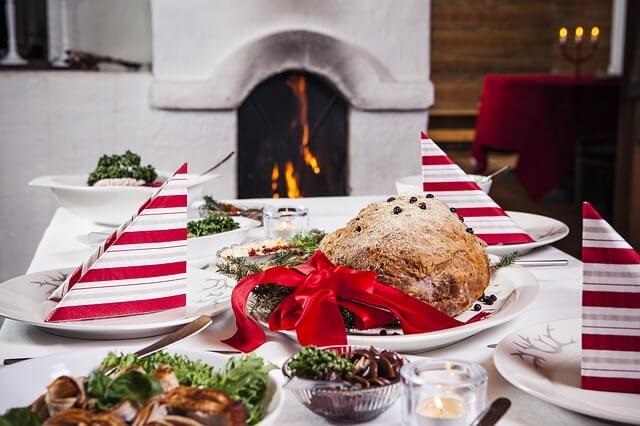
#1 – Try to have 5 meals a day to keep hunger under control
The worst thing you could do after a period of overeating is starve yourself. If you don’t want to be preparing yourself for a binge eating session, then forget fasting. A well-balanced and varied diet provides you with all the nutrients your body needs to work properly and stay in good health. Don’t succumb to the temptation of skipping meals to make up for holiday excesses. It is a dangerous and needless sacrifice, that doesn’t help you detox or lose weight. On the contrary, have 5 meals a day to distribute calories and nutrients during the whole day and to keep hunger at bay.
Don’t skip breakfast and remember a piece of fruit late in the morning and afternoon helps you keep your hunger under control before the main meals.
I know you may have heard of different fasting methods, such as intermittent fasting for example, but if you are not used to this practice, I would suggest you stick to the 5-meals-a-day scheme.
#2 – Drink plenty of water
There are so many benefits of being well hydrated, as your body is composed of about 60% of water. Thus, water is essential to your body. It carries out extremely important functions: it promotes digestion, is a source of minerals and, as it induces satiety, helps you reduce the food intake.
Here’s what drinking water may do to your body:
- It helps your kidneys work better and cleanse your body of toxins. It also prevents the formation of kidney stones.
- It helps prevent constipation by maintaining the right hydration of the colon.
- It helps energize your muscles by maintaining the right level of fluids and electrolytes.
- It helps you control your calorie intake. Choosing water-rich foods, such as fruit and vegetables or soups, may be a good weight loss strategy.
Make sure to drink at least 8 glasses of water a day, to reintegrate the fluids you lose with normal daily activities and keep hydrated. Try adding some lemon juice to your water for an extra vitamin C boost.
#3 – Eat 5 portions of fruit and vegetables to detox after the holidays
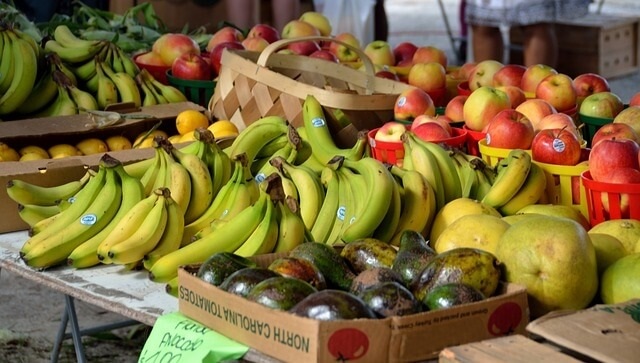
Fruit and vegetables, with their vitamins and minerals contents, are the perfect allies to help you detox and lose weight. Make sure you eat at least 5 portions of fruit and/or vegetables daily. One portion equals to about 80 grams or a small piece of fruit or vegetable, such as an apple, a small banana, a pear, a tomato, etc.
Choose fruits and vegetables with a higher detox power, such as:
- artichokes, which are rich in fiber;
- apples, that thanks to a substance called pectin, help the bowel work properly. Pectin is a fiber that attaches to heavy metals and cholesterol in the body and helps cleanse the intestines.
- lemons – a real vitamin C bomb, a powerful antioxidant protecting you from free radicals’ aggression.
- blueberries, which are among the most powerful antioxidant-rich fruits and vegetables.
- celery, which supports digestion and healthy liver function.
This list could go on and on. Basically, every seasonal fruit and vegetable you can get your hands on will benefit your health and physical shape, if eaten in moderation, of course.
#4 – Less salt
Limit salt consumption. It is a well-known fact that too much salt exposes you to a higher risk of cardiovascular diseases and promotes water retention. If you consume less salt, you’ll have a healthier heart and you’ll feel less swollen.
What are the alternatives to salt? Use spices and herbs to dress your dishes and consider steam-cooking your food. This method of cooking will enhance the food taste and you won’t feel the need to add much salt or use savory dressings.
There’s another aspect to consider: study carefully the salt content of the foods you buy in grocery stores, such as cold cuts, canned and precooked food, cheese, etc. It is a good habit to read the labels of the products so you can control your salt intake better.
#5 – Avoid refined sugar
We live in an era of excessive sugar consumption. Sugar addiction affects millions of people worldwide and, apart from disrupting your energy level, sugar is responsible for a whole array of ailments and diseases, such as caries, obesity, metabolic syndrome, inflammatory diseases. Research has shown that sugar may worsen or trigger inflammation in the body, so if you feel achy and tired after a period of holiday overeating, then you should start by eliminating refined sugar from your diet.
Most packaged foods contain different amounts of sugar and thus avoiding it may become quite tricky. Avoid buying pre-cooked foods and cook your meals at home, try to find some healthy alternatives to that sweet treat you just can’t say no to. These can be dried fruit, nuts, or substituting sugar with naturally occurring sweeteners such as xylitol or erythritol.
#6 – Move more
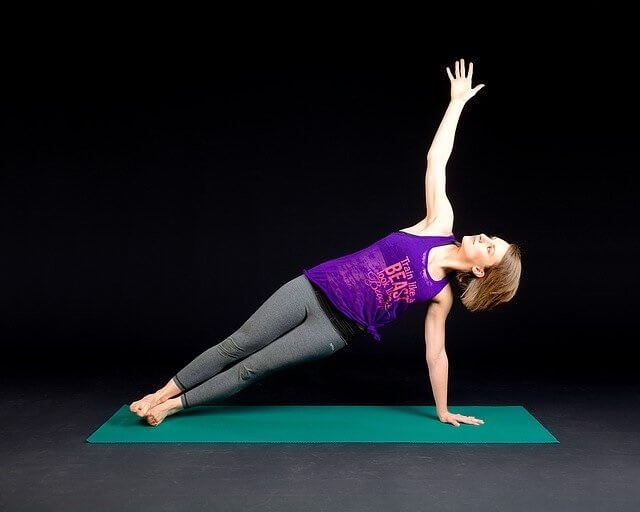
Together with a well-balanced diet, an active lifestyle is key to health and physical shape. Moving throughout the day helps control body weight, improves digestion and gut health, protects your cardiovascular system, boosts the immune system, and keeps the stress away.
It is important though not to put yourself under pressure during this so-called detoxing period. Your body is already stressed out as it is by trying to recover, so don’t make it any harder. Try moving in a way that is enjoyable and fun for you. Go for a walk, take the stairs instead of taking the lift, do some jogging, or do any exercise or workout that makes you feel good, but do it consistently.
#7 – Get plenty of sleep
Getting enough sleep is the foundation of a healthy body and a healthy mind. The lack of sleep affects us in a greater way than we can imagine. It has been closely associated with numerous health conditions, such as hypertension, obesity, depression, anxiety, decreased brain function, weakened immune system, low fertility rates, etc. Our organs and all our internal biological systems need sleep to function well. This is why when our body needs a reset and detox after the holidays it is essential that we give it enough rest and sleep.
It has also been shown that the liver, the main organ responsible for detoxifying our body, works its hardest while we sleep, particularly from 1 to 3 am. So do your body a favor and don’t stay up late.
#8 – (probably the most important tip on how to detox after the holidays) Manage stress
Did you know that stress actually produces toxins in our bodies? This is how it works: stress interferes with the immune system and this triggers liver inflammation. This happens because of the over-production of stress hormones and activation of the nerves in the fight-or-flight response. Stress also has other related effects on our bodies:
- It disrupts sleep and we have just talked about the importance of sleep for our health and in the detoxifying process in particular.
- Causes an increase in the production of free radicals, which leads to oxidative injury and causes the development of cardiovascular and neurodegenerative diseases.
- The stress hormone cortisol can undermine your efforts to lose weight. It is due to the fact that high cortisol levels can cause cravings for sweets, and fatty and salty foods.
Detox your body and mind by taking care of yourself, stopping to blame yourself, living in the present, practicing meditation and mindfulness, detaching yourself from toxic people, and protecting yourself from negativity.
Bonus tips:
#9 – Avoid caffeine and alcohol
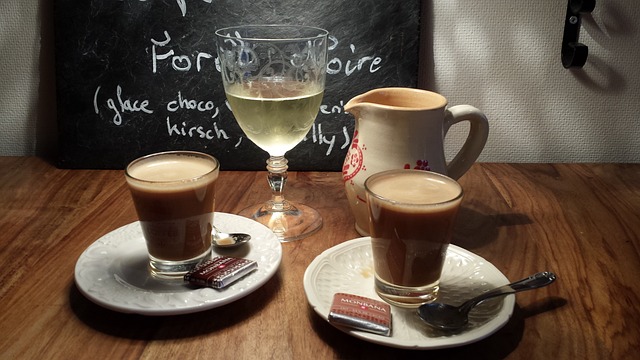
It is a well-known fact that the consumption of alcohol causes dehydration of the body and thus leads to a malfunction of all organs and systems of the body. While typically having a glass of wine now and then won’t do any great harm to your health, it would be wiser to avoid any alcoholic drinks during the detoxing and cleansing period.
As far as caffeine is concerned, drinking coffee in moderation is not bad for most people, but since caffeine, just like alcohol, is metabolized in the liver, you should be thinking about cutting off on the caffeine. If you find it hard to avoid drinking coffee, start by eliminating harmful energy drinks containing caffeine and reducing the amount of coffee you consume daily. Try to substitute it with healthier drinks such as green coffee and green or white teas, which are also famous for their antioxidant properties.
Coffee also affects your digestive system and can cause heartburn. In addition to that caffeine also increases the production of stress hormones and triggers inflammation processes.
The bottom line is both alcohol and caffeine can put our main filtering and cleansing organs under extra pressure and thus interfere with the normal detoxification processes.
#10 – Improve and protect your gut health
There are trillions of microorganisms in our gut and a healthy gut microbiome is essential for our overall health. It has been proven that the proper work of many systems and processes in the body is affected by the way our gut works.
Gut health affects a lot of aspects of our well-being: it breaks down food into nutrients, and assists in the regulation of hormones, the overall immune system, and our mental health.
Some factors, such as poor nutrition, lack of sleep, age, menopause, stress, a few pathologies, and taking medications may cause negative changes in the gut microbiome and its malfunction by breaking the balance of the gut microbiome.
A malfunctioning gut may cause bloating, heaviness, poor digestion, a lower immune system, a higher risk of infections, fatigue, anxiety, and insomnia. Your whole body may get affected and become weaker. This is why improving and maintaining your gut health is an important part of the overall detoxification and cleansing process of your body.
It is extremely helpful to:
- stay hydrated (see point 2),
- eat fruit, vegetables, and oats that a rich in fiber and prebiotics (read more about the best foods that can help you improve your gut health here),
- include probiotic-rich yogurts, kefir, and cottage cheese in your daily diet.
#11 – Drink herbal teas
Herbal teas may help regain your balance and get rid of toxins and, if you don’t drink enough fluids, they are the right alternative to water for you to stay hydrated.
Start your day with an artichoke, dandelion, or chicory herbal tea. These herbs are known for assisting liver function. Have a cup of these herbal teas on an empty stomach, preferably in the morning, to have its active substances act on the liver more effectively.
In the evening, treat yourself with a linden, lavender, lemon balm, or chamomile herbal tea, to help you relax and make sure you’ll have a regenerating sleep.
#12 – Choose healthy dressings for your dishes
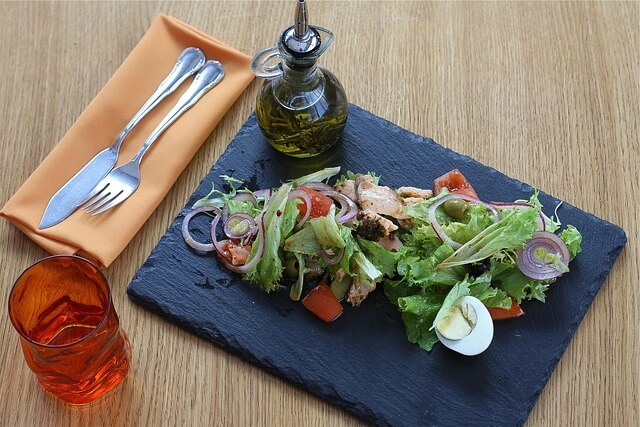
Fats are an essential part of a well-balanced diet. You shouldn’t cut them off, though what you should do instead is choose the right ones. Include plant-based fats in your diet and prefer them to animal fats. The plant-based fats are extra virgin olive oil, flaxseed oil, walnut oil, avocadoes, coconut oil, etc.
Animal fats, such as butter or lard, are richer in saturated fatty acids and cholesterol.
Use extra-virgin olive oil, either raw or to cook, as it boasts valuable nutritional properties that make it a good ally against cardiovascular diseases. What is more, it is rich in polyphenols and vitamin E, powerful antioxidants that help fight free radicals.
Conclusion
Holidays are the best time of the year when you enjoy the company of your loved ones, have good food, and maybe have a drink or two. Coming back to your daily routine can be stressful. And most of the time you may feel that your body needs a reset.
If you are wondering how to detox after the holidays, you will need to consider all aspects of your everyday life: from what and how much you eat and drink, to your lifestyle, your mental state, medications, and stress management.
There is no secret formula to it, just stick to the basic rules. Eat a well-balanced diet, stay hydrated, move, get enough sleep, and most importantly don’t make it hard on yourself. Give yourself a break and be gentle with your body and your mind.
References:
“Lipophilic and hydrophilic antioxidant capacities of common foods in the United States”, Xianli Wu, Gary R Beecher, Joanne M Holden, David B Haytowitz, Susan E Gebhardt, Ronald L Prior
“Liver Injury from Herbal, Dietary, and Weight Loss Supplements: a Review”, Elizabeth X. Zheng* and Victor J. Navarro
“Impact of sugar on the body, brain, and behavior”, Clara R Freeman, Amna Zehra, Veronica Ramirez, Corinde E Wiers, Nora D Volkow, Gene-Jack Wang
“Health effects of sugar consumption and possible alternatives”, Bettina Karin Wölnerhanssen, Anne Christin Meyer-Gerspach
“Excessive intake of sugar: An accomplice of inflammation”, Xiao Ma, Fang Nan, Hantian Liang, Panyin Shu, Xinzou Fan, Xiaoshuang Song, Yanfeng Hou, Dunfang Zhang
“Sleep and liver disease: a bidirectional relationship”, Thomas Marjot, David W Ray, Felicity R Williams, Jeremy W Tomlinson, Matthew J Armstrong
“A literature review for the mechanisms of stress‐induced liver injury”, Jin‐Yong Joung, Jung‐Hyo Cho, Yun‐Hee Kim, Seung‐Hoon Choi, and Chang‐Gue Son
“Oxidative stress, aging, and diseases”, Ilaria Liguori, Gennaro Russo, Francesco Curcio, Giulia Bulli, Luisa Aran, David Della-Morte, Gaetano Gargiulo, Gianluca Testa, Francesco Cacciatore, Domenico Bonaduce, and Pasquale Abete
“Stress, cortisol, and obesity: a role for cortisol responsiveness in identifying individuals prone to obesity”, S D Hewagalamulage, T K Lee, I J Clarke, B A Henry
“Alcoholic disease: liver and beyond”, Alba Rocco, Debora Compare, Debora Angrisani, Marco Sanduzzi Zamparelli, Gerardo Nardone
“10 Reason to Quit Your Coffee”, by Mark Hyman, MD
“Gut microbiome and health: mechanistic insights”, Willem M de Vos, Herbert Tilg, Matthias Van Hul, Patrice D Cani
“Pharmacological Studies of Artichoke Leaf Extract and Their Health Benefits”, Maryem Ben Salem, Hanen Affes, Kamilia Ksouda, Raouia Dhouibi, Zouheir Sahnoun, Serria Hammami, Khaled Mounir Zeghal
